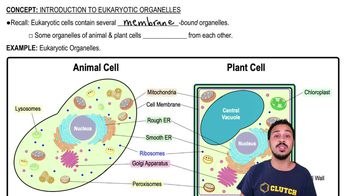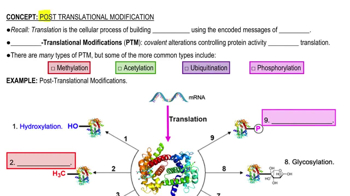Textbook Question
Explain how the form of the following structures is related to its function:
Cilia
651
views
 Verified step by step guidance
Verified step by step guidance Verified video answer for a similar problem:
Verified video answer for a similar problem:



 3:45m
3:45mMaster Introduction to Eukaryotic Organelles with a bite sized video explanation from Bruce Bryan
Start learning